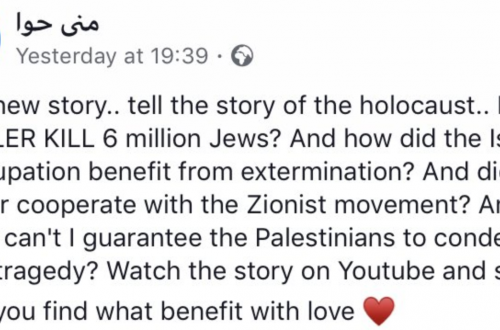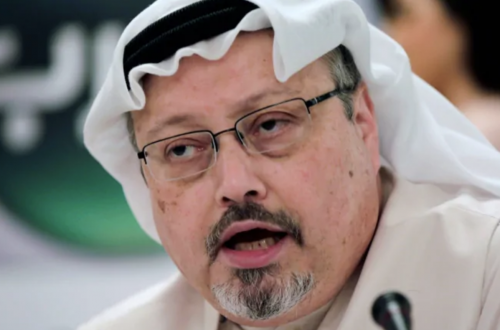ami attended the 7th Session of the Human Rights Council in Geneva in March, with an NGO delegation. Here are some high and lowlights:
Tuesday 25 March: Day umpteen of the 7th session. .. Soon enough, we would be looking back to the apartheid analogies of OPT (Occupied Palestinian Territories) Special Rapporteur Dugard during the previous week, with wistful nostalgia after his replacement is voted in: a man who prefers Nazi analogies and according to this, has decided truther tendencies.
Worse, new man Richard Falk speaks asajew. This means that during the debate on his appointment, when Israel comments that it is impossible to believe that out of a list of 184 potential candidates the eminently wise members of the Consultative Group honestly have made the best possible choice for this post, it becomes possible for Palestine to claim this is an irony: that Israel which claimed to be representing Jews everywhere was campaigning against a Jewish professor. Palestine points out that the candidate is the author of 54 books on international law. Palestine doubted that those who campaigned against him had read that many books.
Israel aside, only the USA, mildly, expresses “concern” at Falk’s appointment, and Canada expresses “serious concern whether the high standards established by the Council would be met by this individual.”
But this is for tomorrow: for now, the states are murmuring anodynely on the Vienna Declaration, a broad non specific HR agenda item.
The tone changes when the USA, followed by Australia, use their time to condemn China’s actions in Tibet. This prompts a dogged flow of interruptions from a deadpan China, points of order (20 in all) that specific country issues cannot be raised under this item.
The agenda items on specific states have closed in the days past, with the usual disproportionate space given over to the report on the OPTs (occupied Palestinian terrritories)
The problem is that the Tibet issue has flared up in the 2 weeks since the country agenda was closed, and this is now the only space left to raise this issue. The Chair gives an ambiguous ruling, so that NGOs such as the International Commission of Jurists and Reporters without Borders modify their interventions to speak about hypothetical abuses in hypothetical countries, with a concluding sentence where they said, very quickly, in effect- we were talking about Tibet and China all the time, too late for your points of order, nyaa.
If you ever enjoyed devising such ruses as a participant in MUN, the model United Nations sessions for schools, you would have appreciated these.
Human Rights Watch prompts applause when it concludes that no country can be considered a member in good standing in this council if they suppress minorities, and China should not be allowed to suppress free speech in this chamber as it does in Tibet.
It is much like Eurovision, forecasting which of the usual suspects will side with whom. Taking up the cudgels on behalf of China are Zimbabwe, Cuba (which threatens to propose the session be shut down), Pakistan, Algeria and Sri Lanka (which calls the China mentioners a cacophonic mob).
Switzerland asserts that a correct application of this agenda item does allow country specific comments. To discuss the implementation of the Vienna Declaration only in the abstract would render the Council “a toothless organisation without any real relevance.” Hah!
The deadpan robotic Chinese objecter is replaced by a more foam flecked representative for China for its final right of reply, where he screams his attack on the EU, Australia and USA, on the lines of “who are you to talk about HR what with Iraq etc.” Being unable to attack Switzerland on these grounds, he has to content himself with accusing Switzerland of being in breach of the courtesies of the forum. To some applause, he bellows out Westphalianisms on sovereignty and territorial integrity.
This is followed by a feedback meeting for NGOs with Doru Costea, the president of the HRC, who had chaired the main session. If anywhere there is a shred of redemption to be gleaned from this organisation, it is in these low key sessions. Costea struck me as essentially decent, (better than his predecessor Alba excoriated by Hillel Neuer last year-see below) an impression confirmed by this.
He listened with humility and accepted maybe he had got his rulings wrong. It was pointed out that Myanmar in the previous year didn’t object to being discussed under the same agenda item. Human Rights Watch stated that it wouldn’t like to think this was because Burma was less powerful than China. The NGOs appealed to the Chair to uphold their right to speech which was all the more precious for being endangered in places like China.
The next day, there is a subtle but palpable change in approach by the Chair.
The subject is a continuation of an item on Contemporary Racism, xenophobia and related intolerances. The Special Rapporteur for Racism is considered brave in some quarters for insisting against much opposition on including antisemitism and in categorising Amadinejad’s Holocaust denial as racist in the face of a bloc which was pushing for an almost exclusive emphasis on Islamophobia. He was criticized heavily for including antisemitism in his remit, as having gone beyond his mandate. The HRC rejected a proposal for an individual report on antisemitism.
The earlier sessions on this item spent most of its time on Islamophobia. Pakistan called for the Commission to push for a convention to combat defamation of religions, in order to address what it regarded as the “juidical vacuum” on this topic. Egypt, too, representing the Africa group, asserted it was the obligation of the international community to criminalise this as soon as possible.
The only mention of other religions was India and Nepal which predictably objected to the Special Rapporteur categorising caste as a form of racism, and Chile, which questioned the conclusion of the SR that “Christianophobia” in Africa, Asia and Latin America was caused by the actions of proselytising groups there.
Now, on 26th March, there is the opportunity to redress the balance. Several NGOs express their anxiety that the upcoming Durban II conference on Racism should not be hijacked by the antisemitic hatefest which wrecked Durban I. The SR has given his assurance he will not allow this to happen.
The intervention (as statements are called) of the International Humanist and Ethical Union covers arguments familiar to HP: The term Islamophobia in the SR’s report perpetuates the confusion between valid criticism of some aspects of Islamic practice with hatred of Muslims. The SR reports on obstruction to the building of mosques in Europe, but fails to mention the ban on churches and Christian worship in some Islamic states. The IHEU attaches their written statement from the 2006 session (on the cartoons)where they assert: Believers have the right to practice their religion and to proselytise unhindered, but there is no human right not to be offended, nor can there be if freedom of expression is to have any meaning. Here is the written statement.
And here is the oral statement– It is worth listening to the whole 3 minutes:
(Technical hint: If like me you have linux, you will not be able to open these webcast links directly and need to open them in Real Player)
The showpiece intervention comes from David Littman, on behalf of an obscure org called the Association of World Education. Littman is a veteran campaigner at the UN, (who happens to be married to my heroine Bat Ye’or) with something of the Dennis Skinner about his delivery style. The previous day, his mike was cut after 23 seconds, on his first mention of Tibet. Today, his allotted 3 minutes is stretched to 12, thanks to the constant points of order from Egypt, Palestine and Iran, but today he is allowed to carry on until he is finished.
Littman reiterates his call for the UN to condemn all calls to kill in the name of God or any religion. He lists among those who have justified such calls, Al-Ahzar Grand Sheik Muhammed Sayyed Tantawi and others such as Bin Laden. This prompts an apoplectic objection by Egypt who declares he will not stand for having this revered Sheik mentioned in the same sentence as Bin Laden. Costea in the chair simply thanks Egypt, and deadpan, hands the floor back to Littman.
He enumerates the Judeophobia in the educational material of schools in Egypt, Saudi Arabia, Palestine, Syria and Iran, none of which has ever been covered in reports of the SR nor any UN body or UNESCO. He refers to texts available on MEMRI, PMW and CMIP.
The real star of this number is Chair Doru Costea. He remains steadfast in the face of calls to him by the interjectors to silence the speaker. Egypt objects to his being allowed to speak as he has in last year’s session “insulted” the Council. Costea declares that as long as the speaker is accredited, he will not silence him, and in measured but forceful tones reminds the delegates that we are here to listen to views we may disagree with, and the appropriate remedy for anyone who takes issue with views he disagrees with, is via the right to reply.
I commend this segment to you:
The most stomach churning aspect of the day:
The Appointment of Jean Ziegler to the new Advisory Committee of 18, which will serve as a think tank, providing the Council with “expertise and advice.” He was voted in with an overwhelming 40 out of 47 votes, despite representations of a collaboration of countries and NGOs lead by UN Watch since 2006, and thoroughly documented, exposing what sort of person he is.
The results of the vote was greeted with cheers in the chamber and handshakes for Ziegler from Switzerland (his promoter) and Cuba.
This is the kind of thing that led Hillel Neuer of UN Watch to make the speech last year which some regarded as intemperate:
The most powerful, poignant and eloquent intervention of the conference: This Jewish refugee from Libya for the first time got to tell her story and that of the one million Jews driven out, like herself, of the Middle East.
The final 36 resolutions were the usual array of notes, encourages, urges etc, with 4 condemning Israel (still, only 2 more than Myanmar). A really wishy washy one on Darfur, and some good ones on abuse of rights against women and children.
This one was quite interesting, referring to:
The scourges of anti-Semitism, Christianophobia, Islamophobia in various parts of the world, and racist and violent movements based on racism and discriminatory ideas directed at Arab, African, Christian, Jewish, Muslim and other communities; (Adopted without a vote)
The one to watch , and worry about:
7/19. Combating defamation of religions
Here is a flavour of it:
Reiterating the call made by the Special Rapporteur on contemporary forms of racism, racial discrimination, xenophobia and related intolerance to Member States to wage a systematic campaign against incitement to racial and religious hatred by maintaining a careful balance between the defence of secularism and respect for freedom of religion and by acknowledging and respecting the complementarity of all the freedoms embodied in the International Covenant on Civil and Political Rights …Emphasizes that that respect of religions and their protection from contempt is an essential element conducive for the exercise by all of the right to freedom of thought, conscience and religion.
Requests the High Commissioner for Human Rights to report on the implementation of the present resolution and to submit a study compiling relevant existing legislations and jurisprudence concerning defamation of and contempt for religions to the Council at its ninth session.
Oh, and this one: resolution 7/36, where the Special Rapporteur on freedom of expression is now supposed to police “abuse” of free speech for some purposes:
Although, if you look at the wording, it could be be something of a double edged sword against the proposers of this amendment:
d) To report on instances in which the abuse of the right of freedom of expression constitutes an act of racial or religious discrimination, taking into account articles 19 (3) and 20 of the International Covenant on Civil and Political Rights, and general comment No. 15 of the Committee on the Elimination of All Forms of Racial Discrimination, which stipulates that the prohibition of the dissemination of all ideas based upon racial superiority or hatred is compatible with the freedom of opinion and expression;
Was there any point to any of it? Lacking long term and in depth experience, my impression so far coincides with commenter nomist on the HP post last year. S/he said:
“it’s still the only game in town when it comes to building Human Rights norms. I don’t think it’s the staff that are the problem – they are well-meaning bureaucrats who do appear to care about human rights, but are limited by the system, which is dominated by (selfinterested) states.”
Paradoxically, at Durban I, it was the NGO conference, not so much the state conference, where all the poison erupted. Here, while the states postured, I got the impression that perhaps in the smaller NGO side meetings there was some useful work being done, regarding the condition of women, children and workers. It is a precious right that NGOs have a voice here, unlike at the UN NY. At one of these side meetings, a very appreciative NGO from Phillipines described how in previous years they had come, desperate to bring their plight to the notice of the world, not knowing the ropes in this vast bureaucratic institution, and were given every assistance, and they felt that their situation was ameliorated once it became subjected to the light of international and particularly EU scrutiny. Similarly, the statements and resolutions on issues such as FGM, the conditions of women and children and LGBT discrimination force subjects that are taboo in many of the member states into the light and keep them there.
For me personally, it was the testimony of Gina Waldman, Jewish refugee from Libya heard uninterrupted, and recorded in the annals of the Council, which made it all worthwhile.


